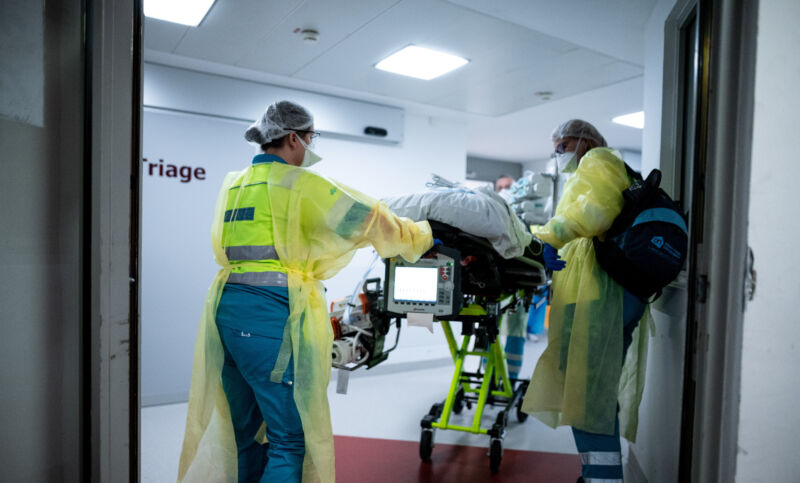
Health officials in Europe are pleading for people to adopt more health precautions as the region grapples with its most dramatic surge of COVID-19 cases yet in the pandemic.
Cases have been skyrocketing across the European region since the start of October, with cases rising from around 130,000 per day to the current all-time high of more than 330,000 per day. For the week ending November 21, the region of 53 countries—including the European Union, the United Kingdom, Russia, and several countries in Central Asia—reported 2,427,657 new cases, representing 67 percent of all COVID-19 cases reported globally.
The region also accounted for 57 percent of all COVID-19 deaths worldwide, with 29,465 deaths in the week ending on November 21, according to a weekly report by the World Health Organization. During the week, daily COVID-19 deaths increased to close to 4,200, doubling from 2,100 daily deaths seen at the end of September, the WHO noted.
The countries now seeing the highest numbers of new cases per day are Germany, the United Kingdom, Russia, France, and Turkey, according to data tracking by The New York Times. Russia, Ukraine, Poland, Romania, and Germany are reporting the highest daily numbers of deaths in the region.
At this point in the pandemic, the European region has recorded over 1.51 million deaths, and COVID-19 is the No. 1 cause of death. With the current surge, deaths are projected to reach more than 2.2 million by next spring, and officials expect “high and extreme stress” on health systems in dozens of countries.
“Duty to society”
In a blunt statement Monday, Germany’s health minister, Jens Spahn, warned that “by the end of this winter everyone in Germany will either be vaccinated, recovered or dead.” Given the options, Spahn urged Germans to get vaccinated. The country has one of the lowest vaccination rates in Western Europe, with only 68 percent of people fully vaccinated. While Spahn said he was against setting vaccine mandates, he called getting vaccinated a “moral obligation.”
“Freedom means taking responsibility, and there is a duty to society to get vaccinated,” he said.
Officials with the WHO, meanwhile, emphasized the need for resuming public health precautions in addition to getting vaccinated. “In order to live with this virus and continue our daily lives, we need to take a ‘vaccine plus’ approach,” Dr. Hans Henri Kluge, WHO regional director for Europe, said in a statement. “This means getting the standard doses of vaccine, taking a booster if offered, as well as incorporating preventive measures into our normal routines. Taken together, wearing a mask, washing hands, ventilating indoor spaces, keeping physical distance and sneezing into your elbow are simple, effective ways of gaining control over the virus and keeping societies going.”
In a press briefing Wednesday, WHO Director-General Dr. Tedros Adhanom Ghebreyesus echoed the point, arguing that the entire world needs to remain vigilant.
“In many countries and communities, we’re concerned about the false sense of security that vaccines have ended the pandemic and that people who are vaccinated do not need to take any other precautions,” Dr. Tedros said. “Vaccines save lives, but they do not fully prevent transmission.” Fully vaccinated people can still get breakthrough infections and spread the virus onward. And with continued transmission comes the continued risk that new variants will emerge.
“While Europe is again the epicenter of the pandemic, no country or region is out of the woods,” Dr. Tedros warned.
https://arstechnica.com/?p=1815680

